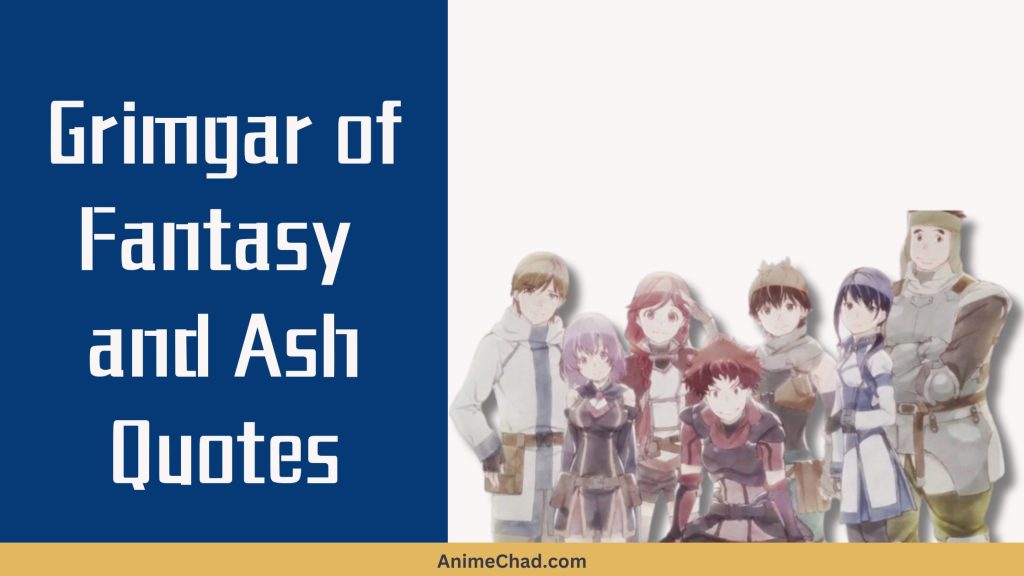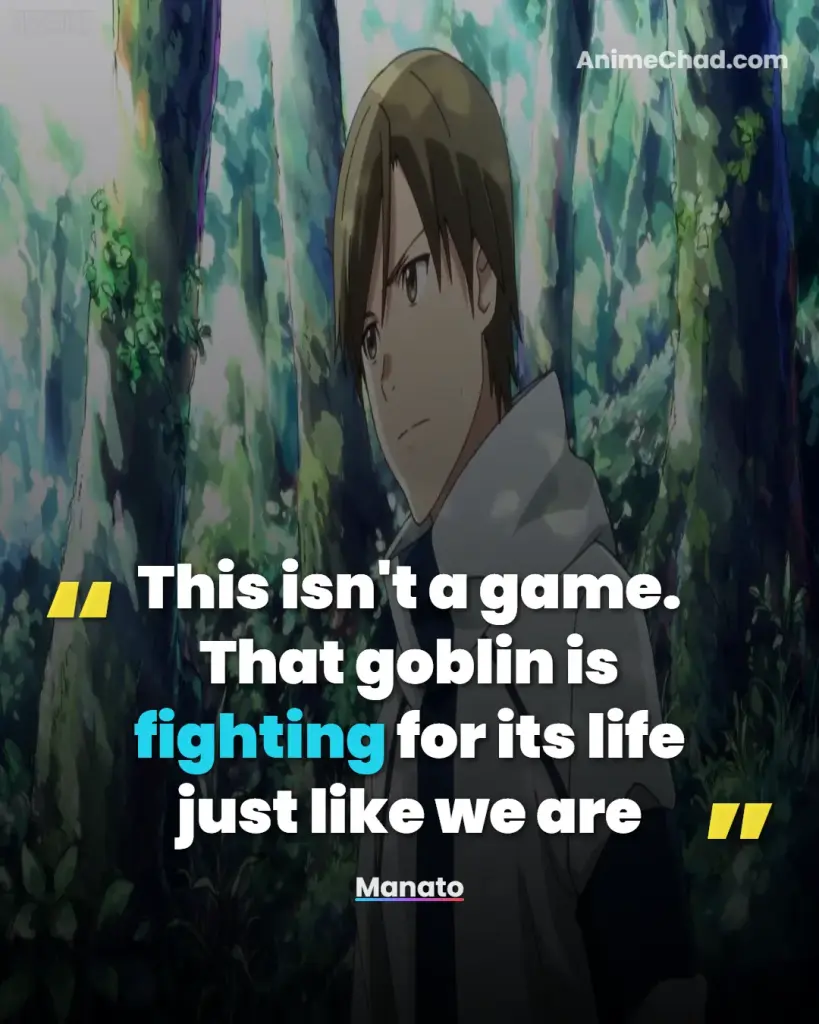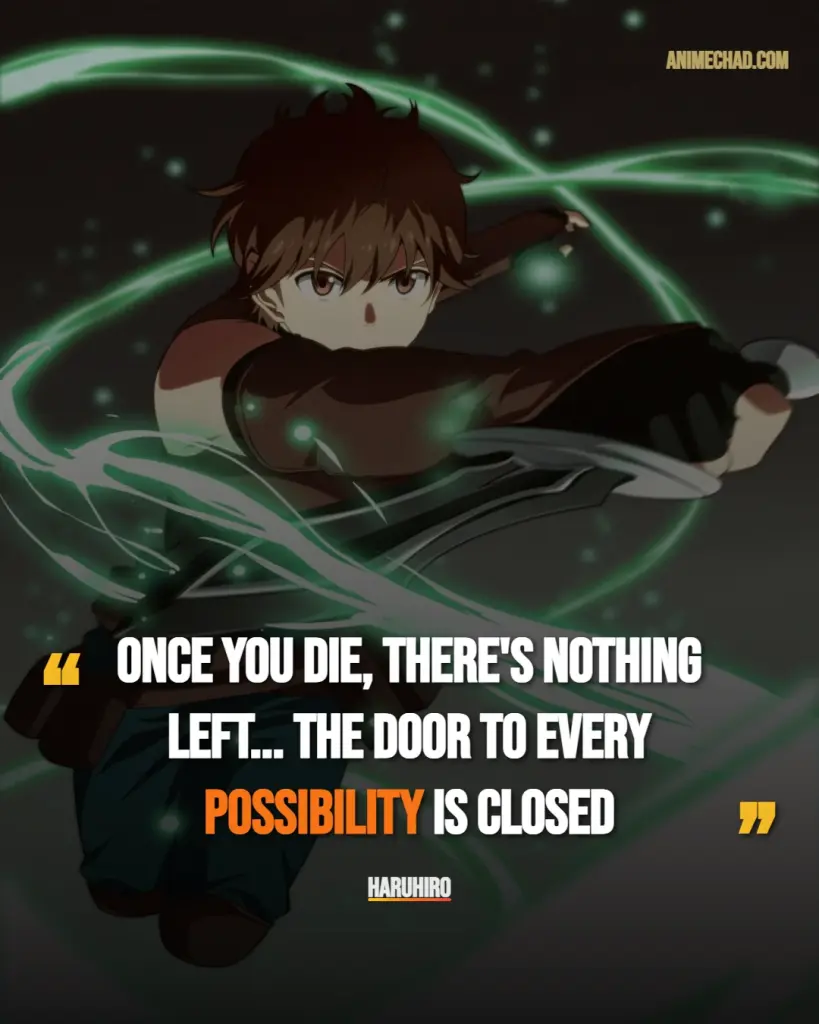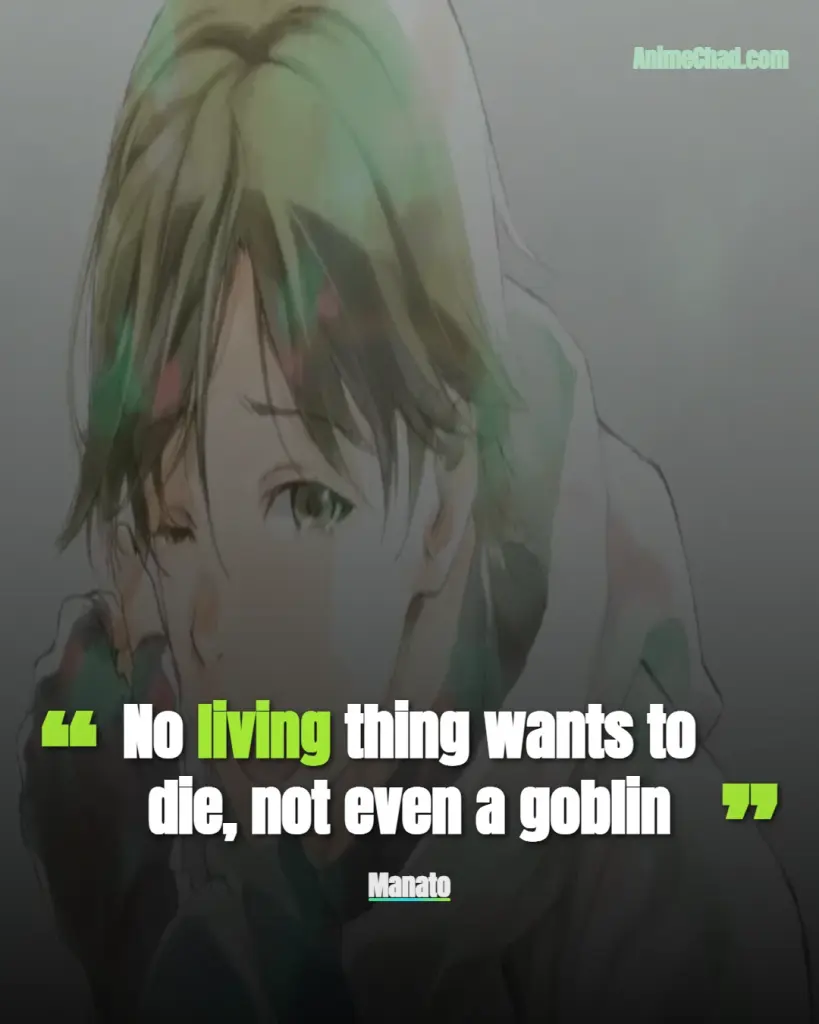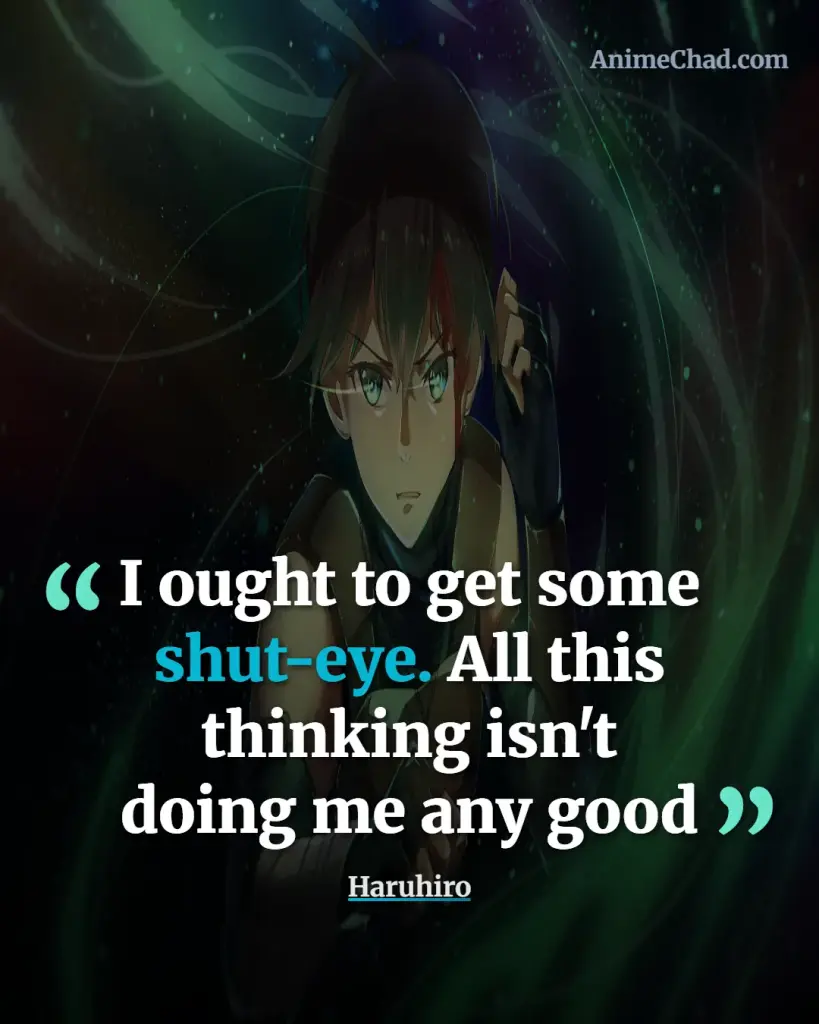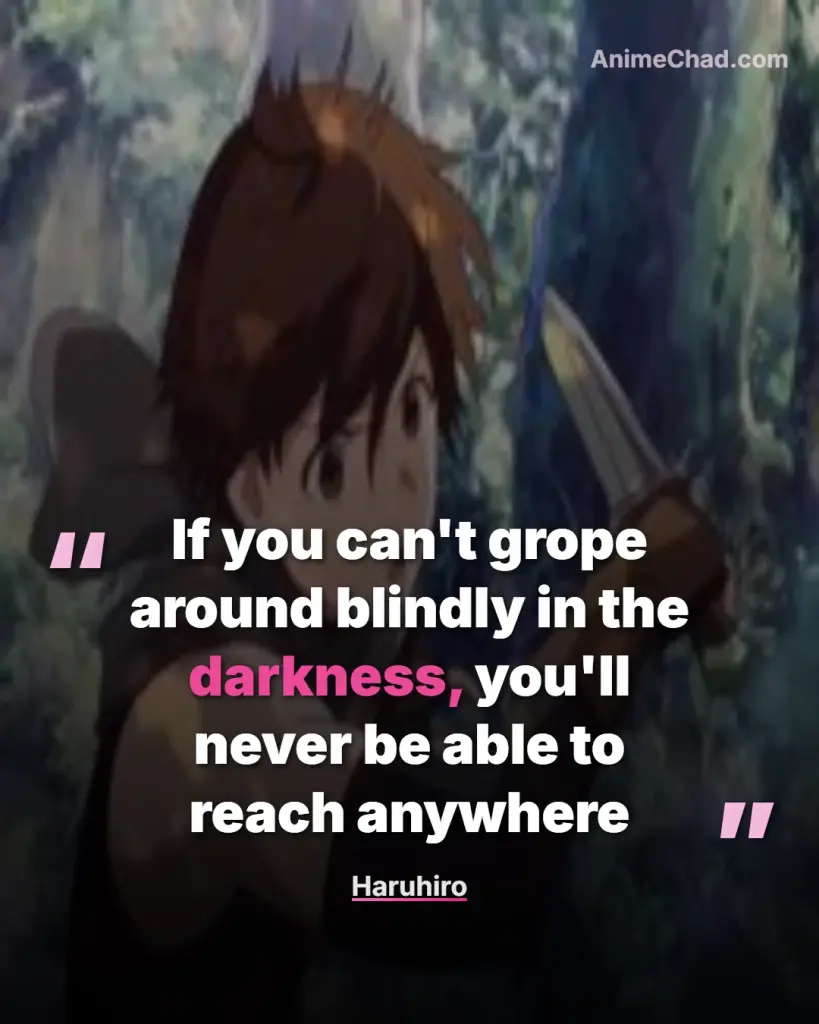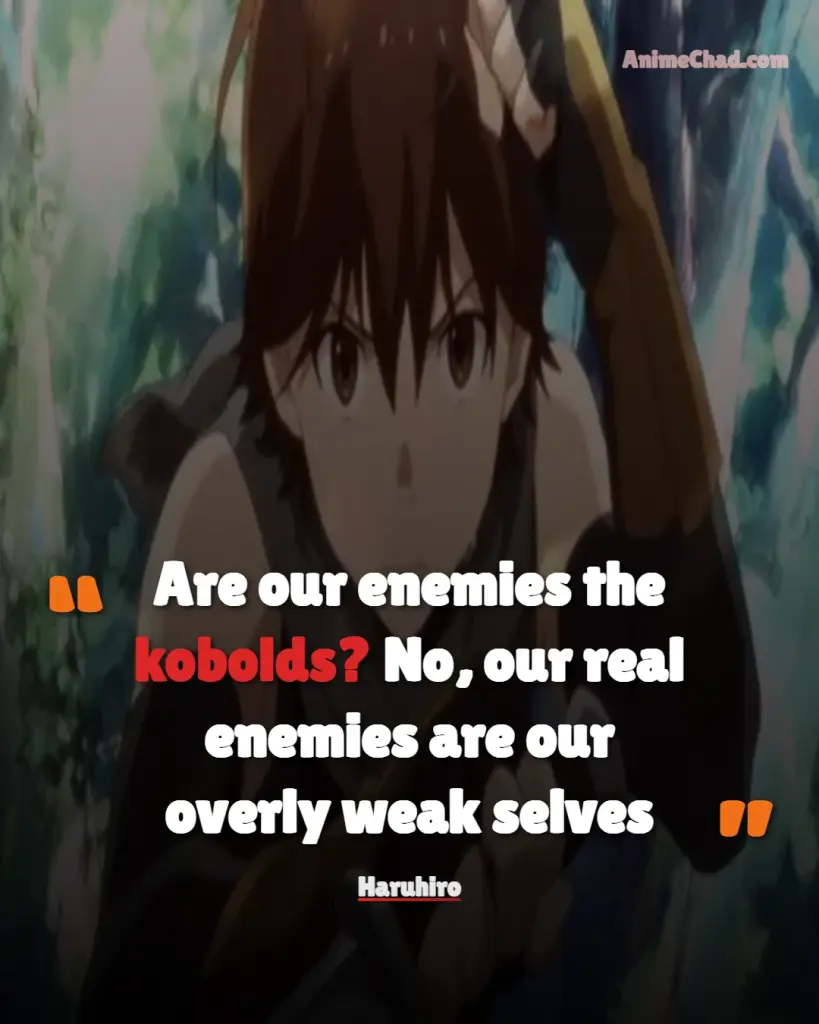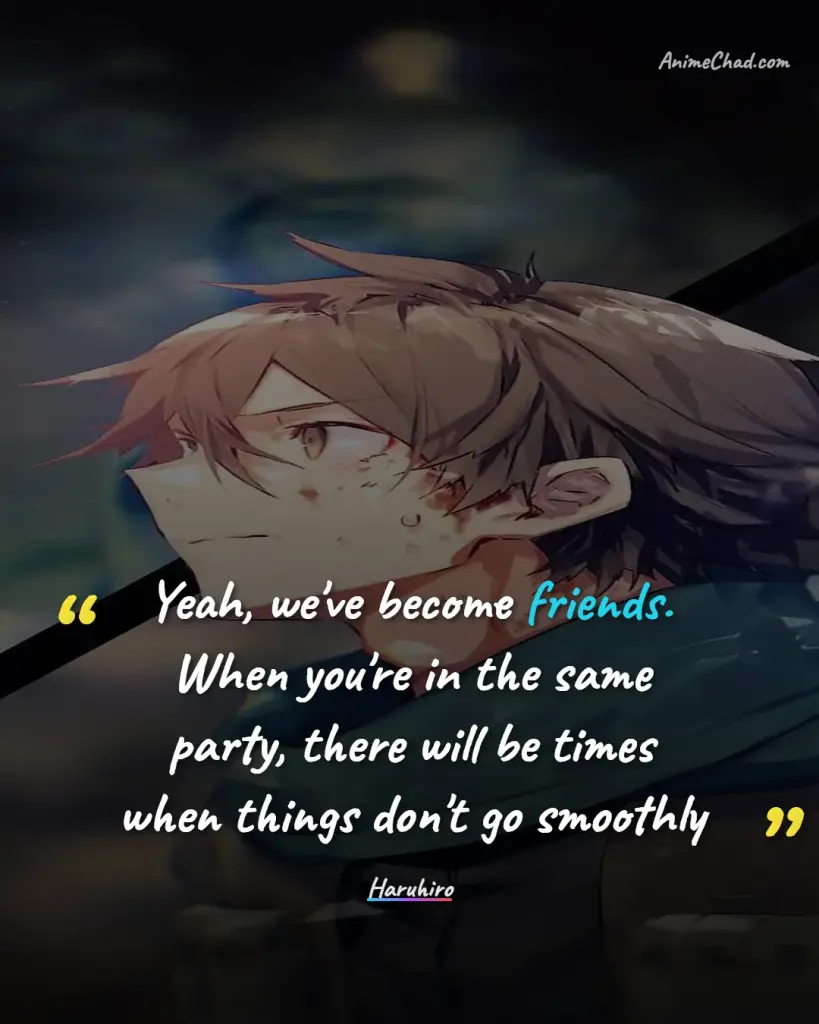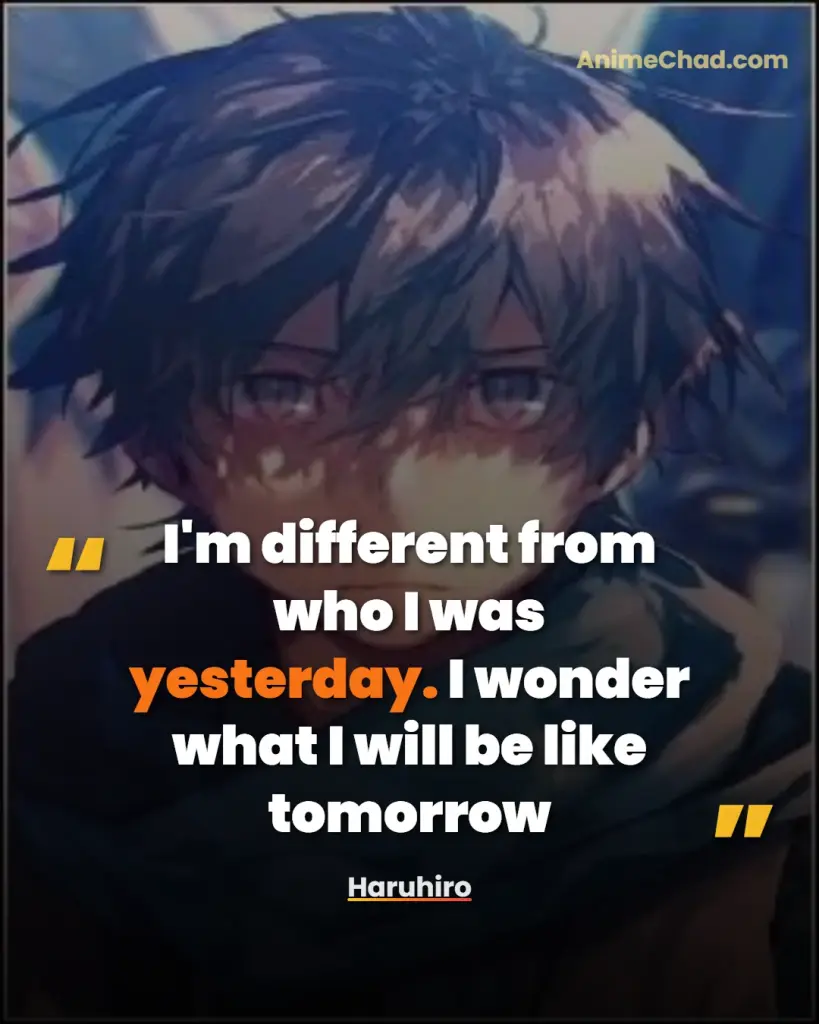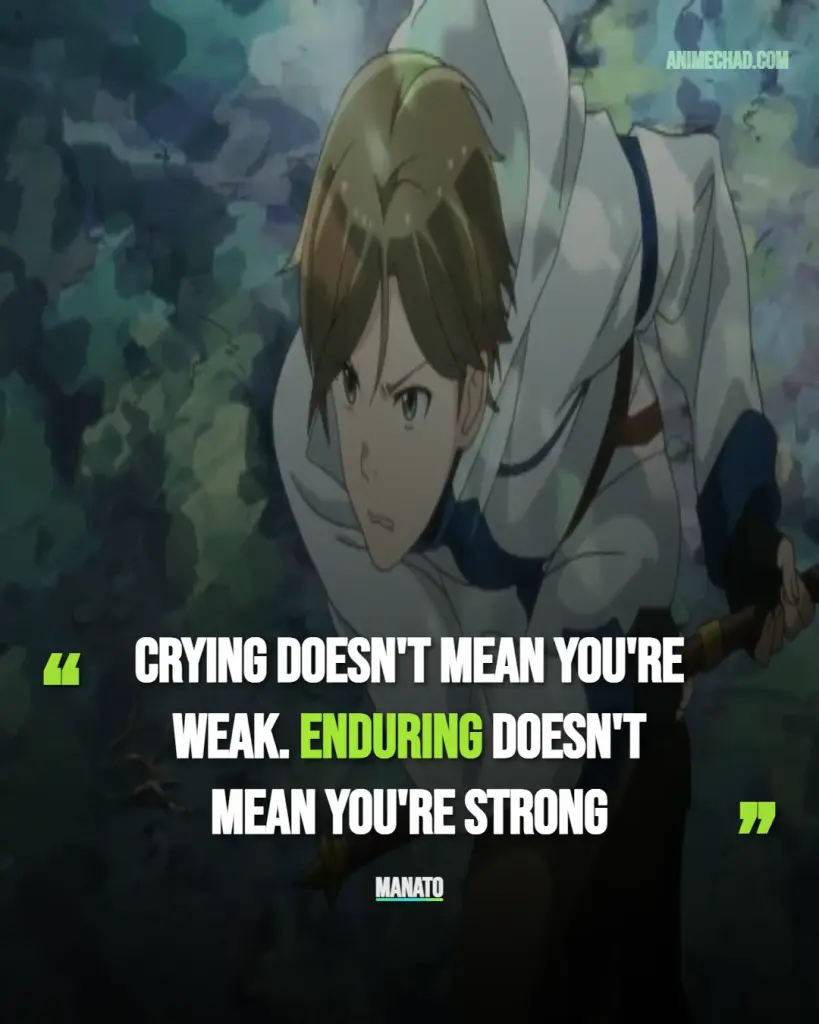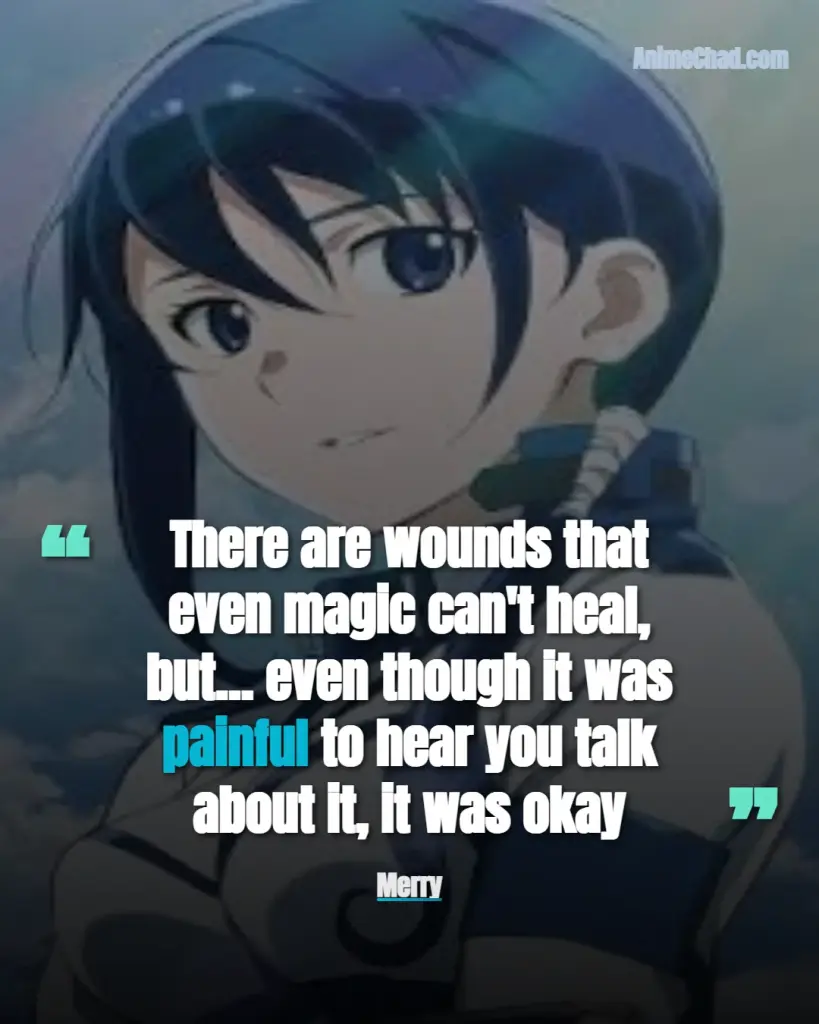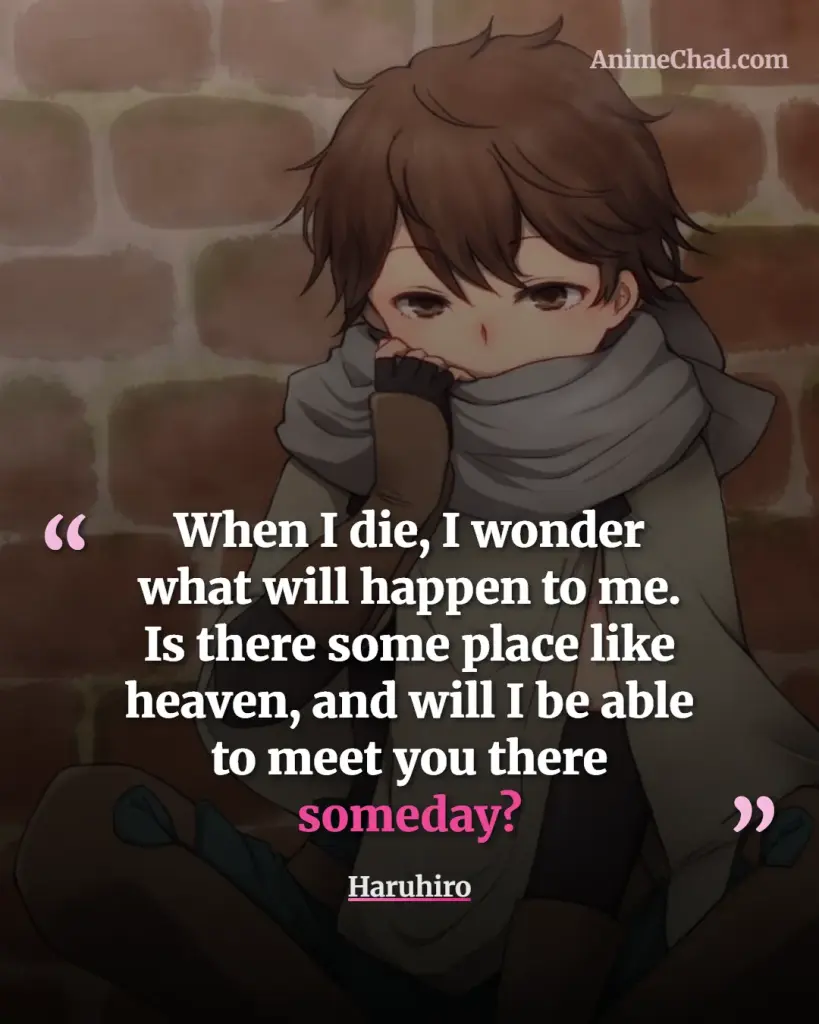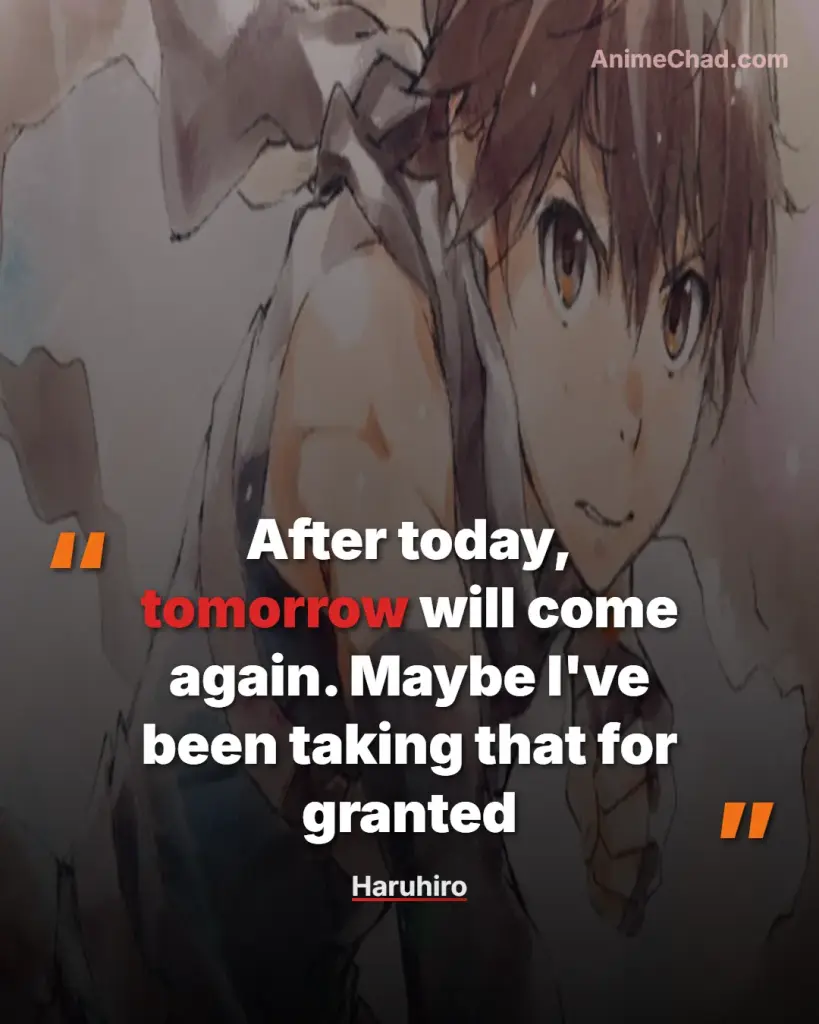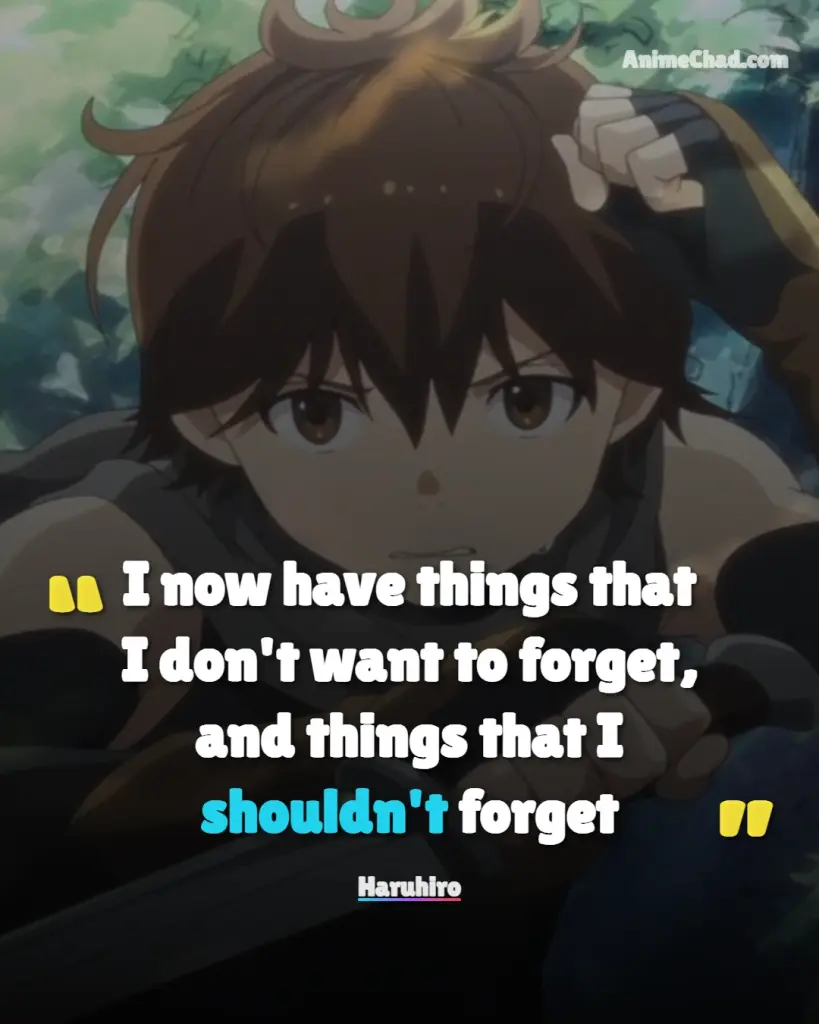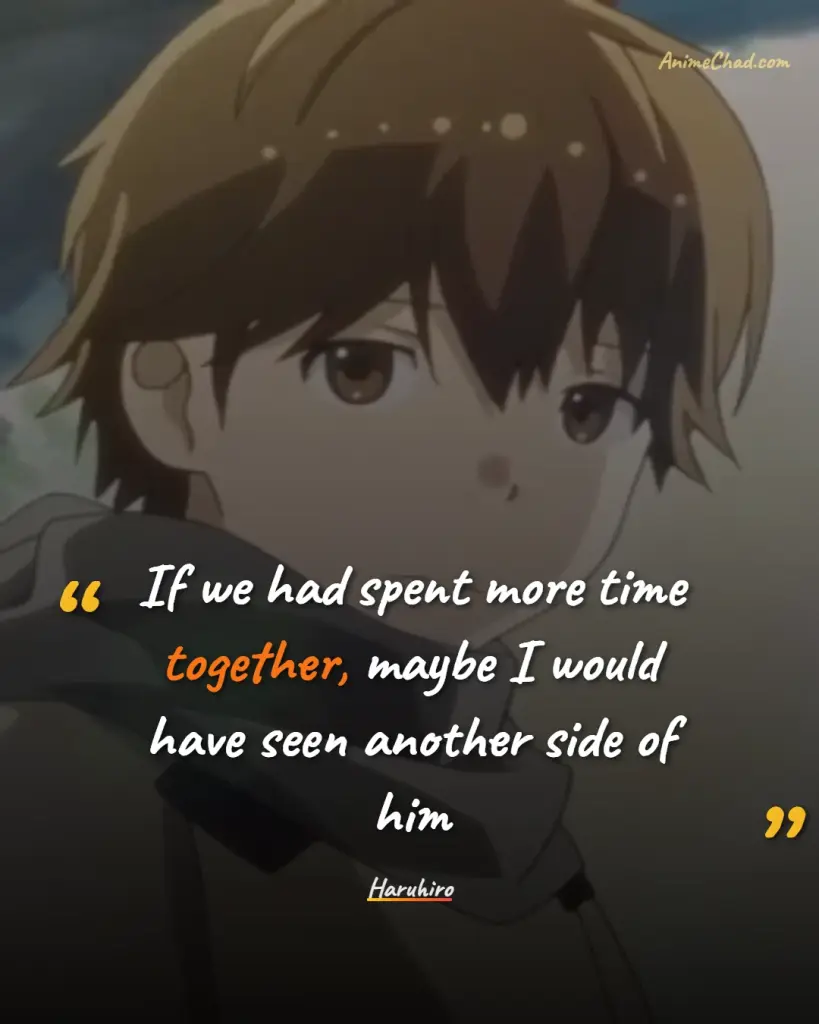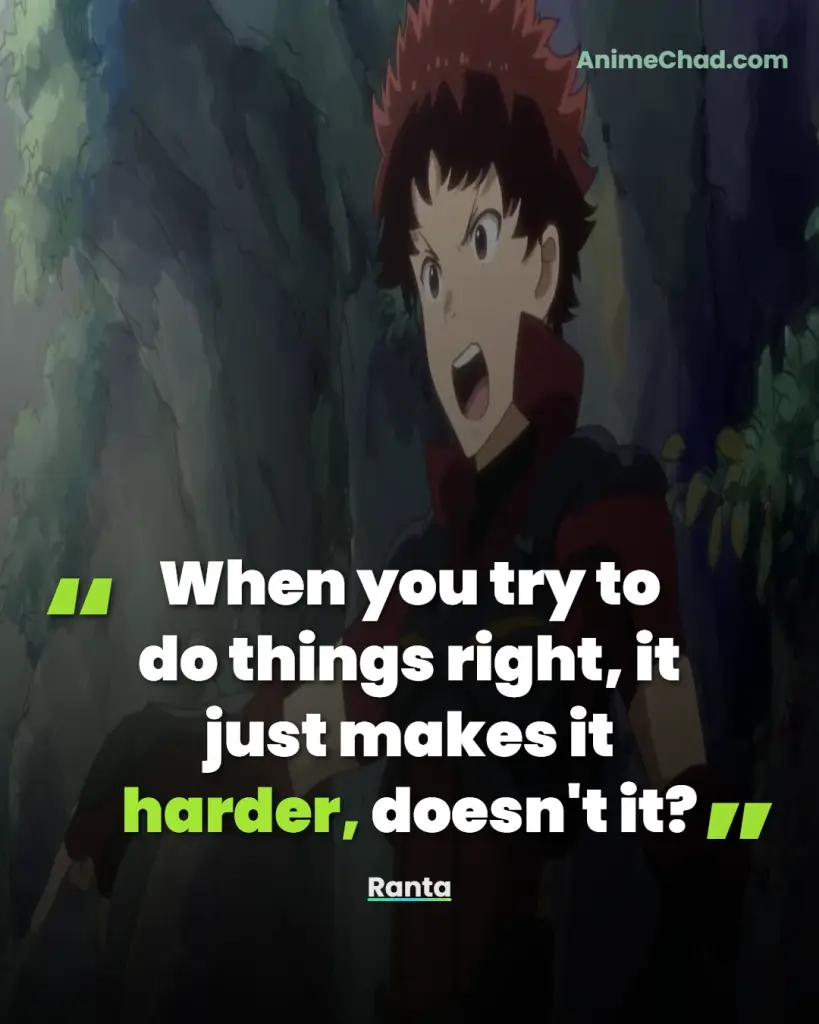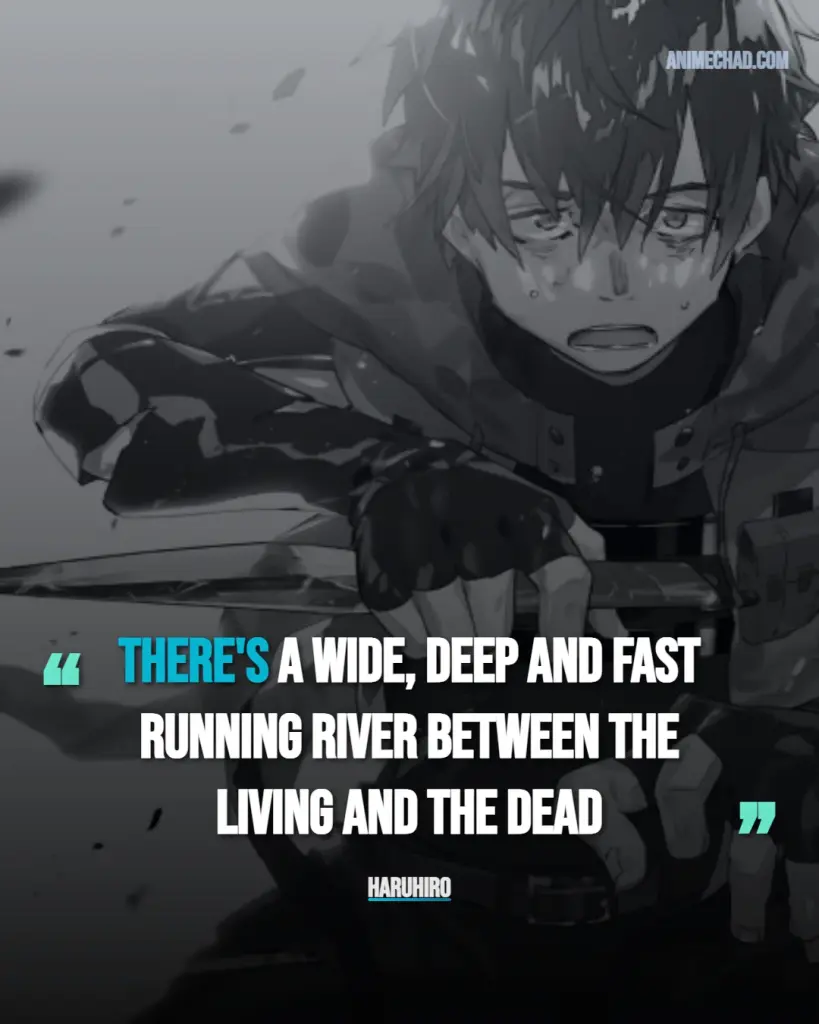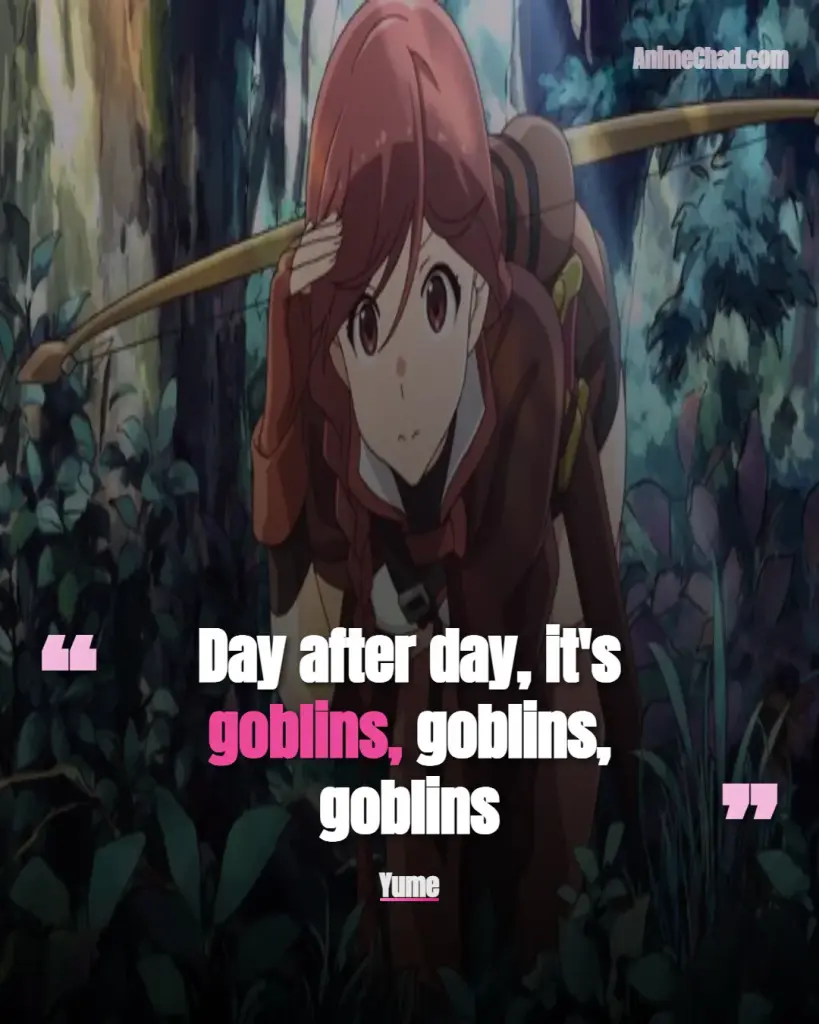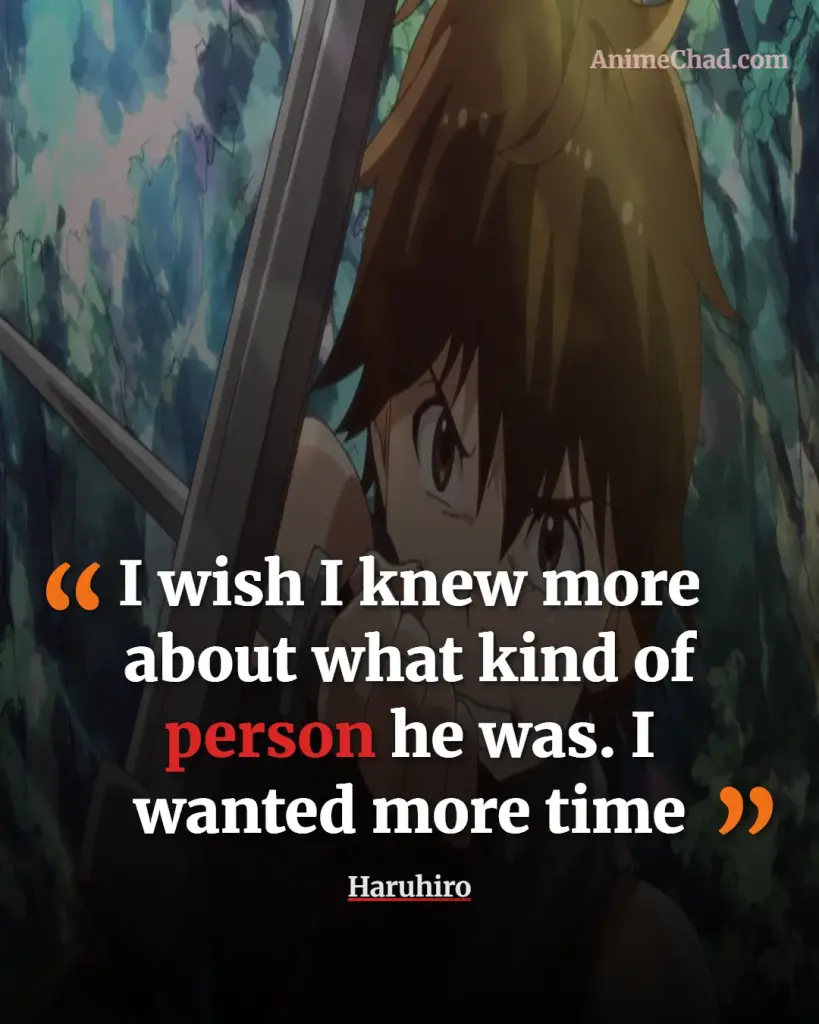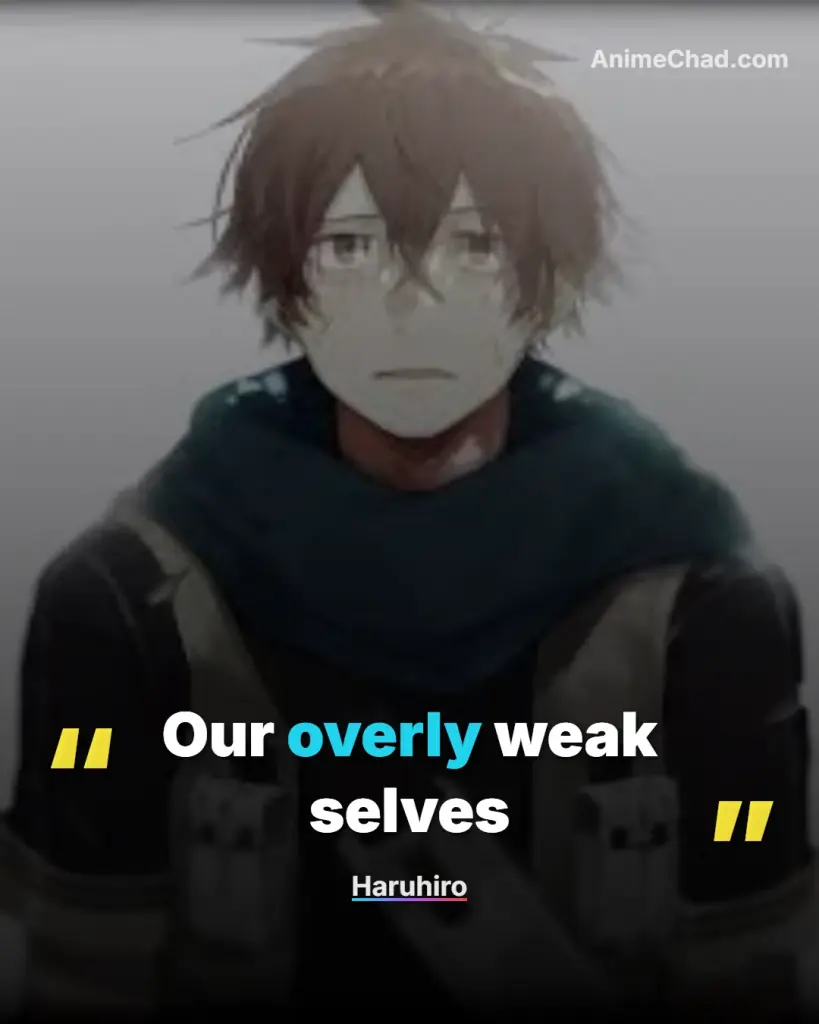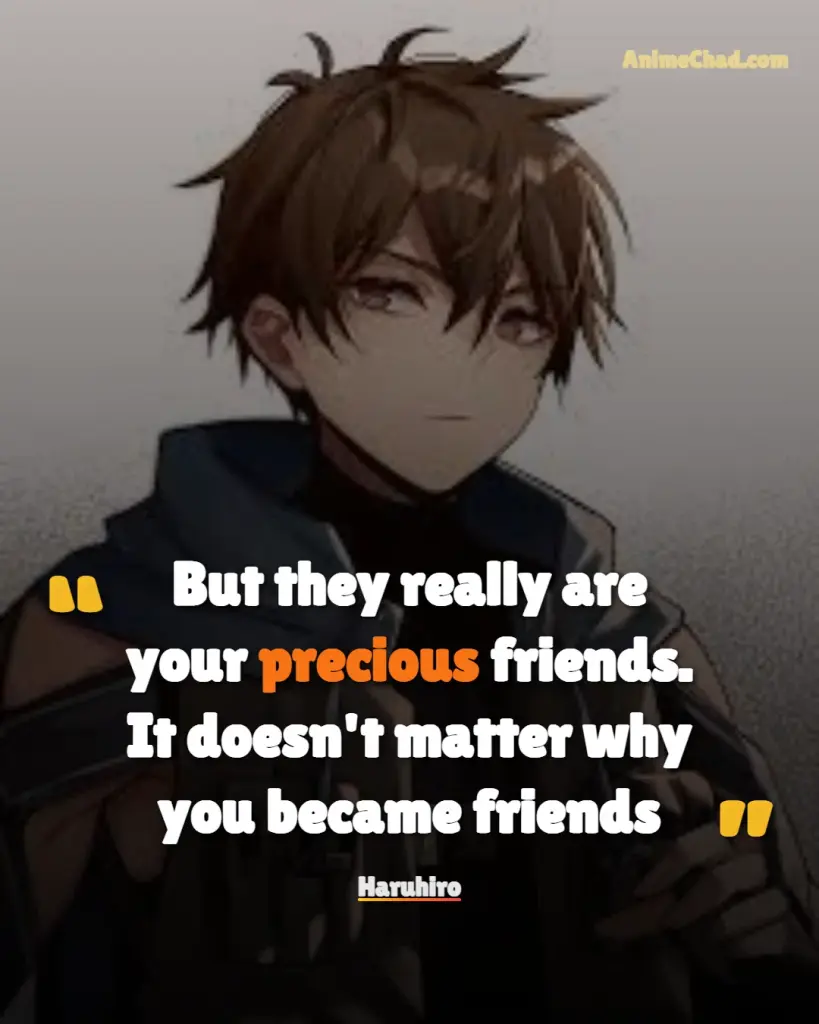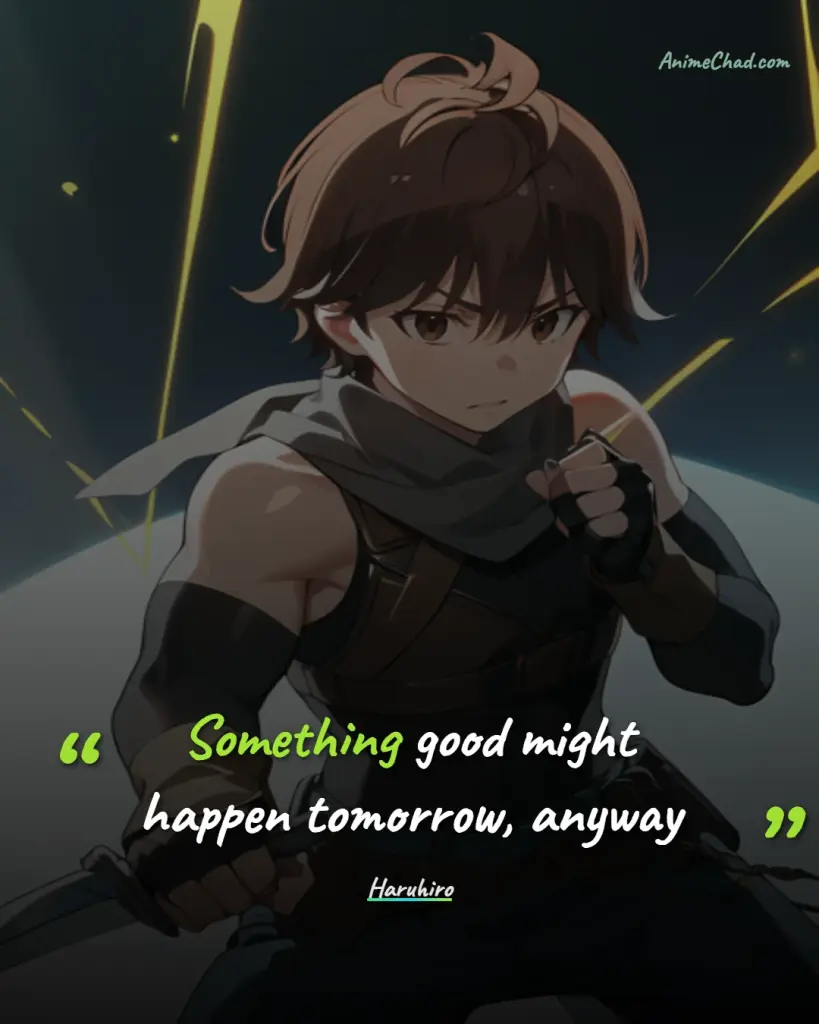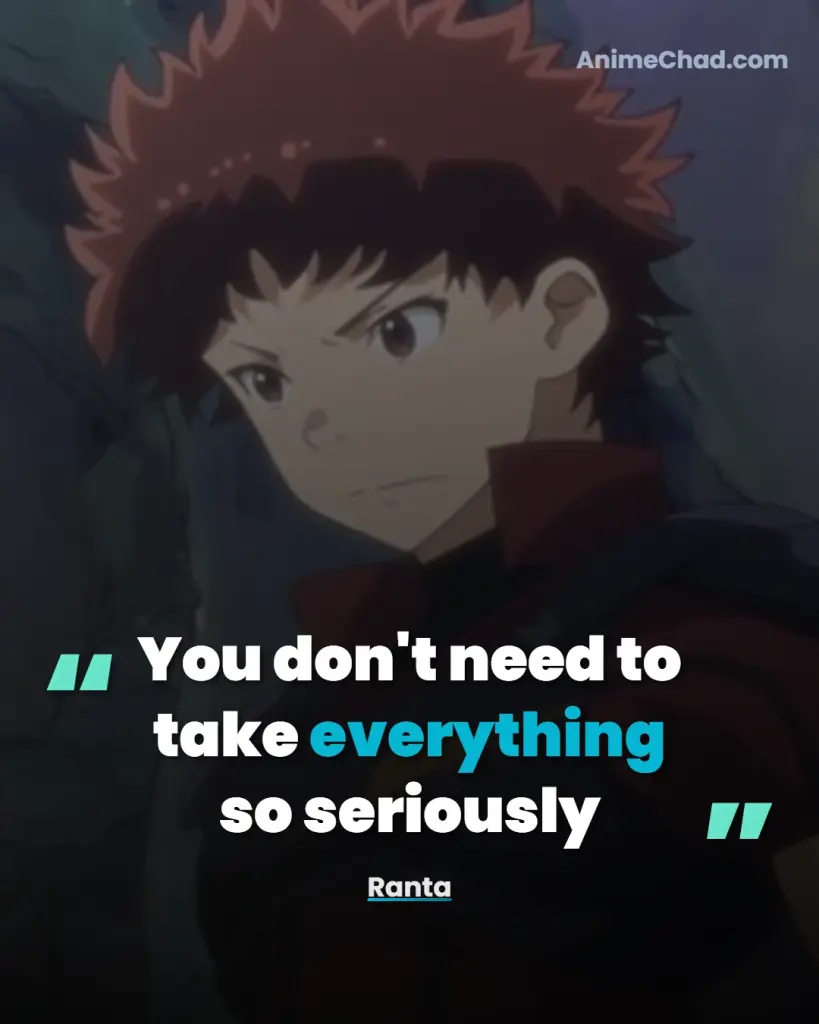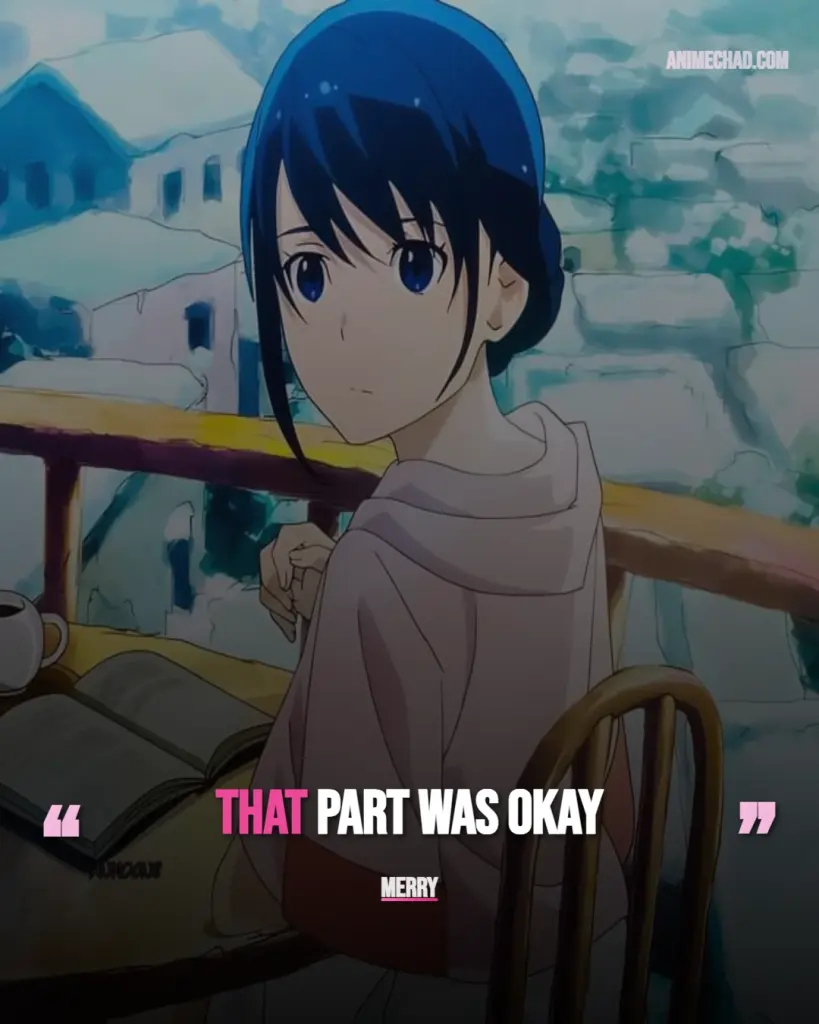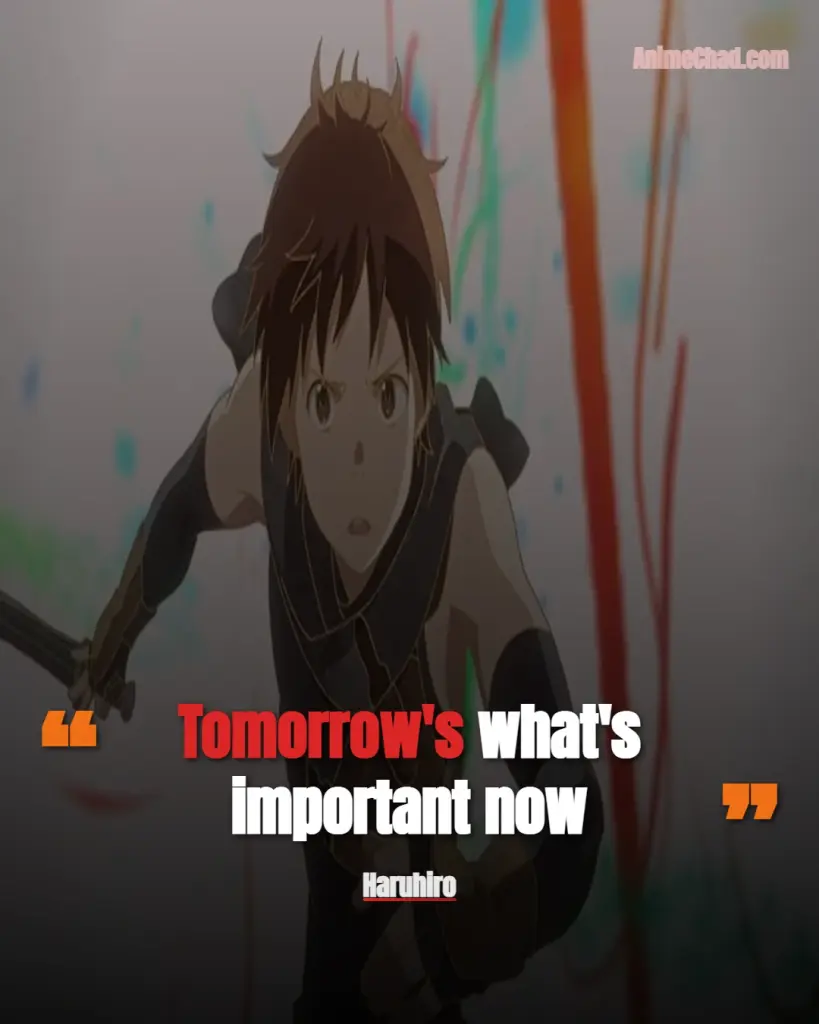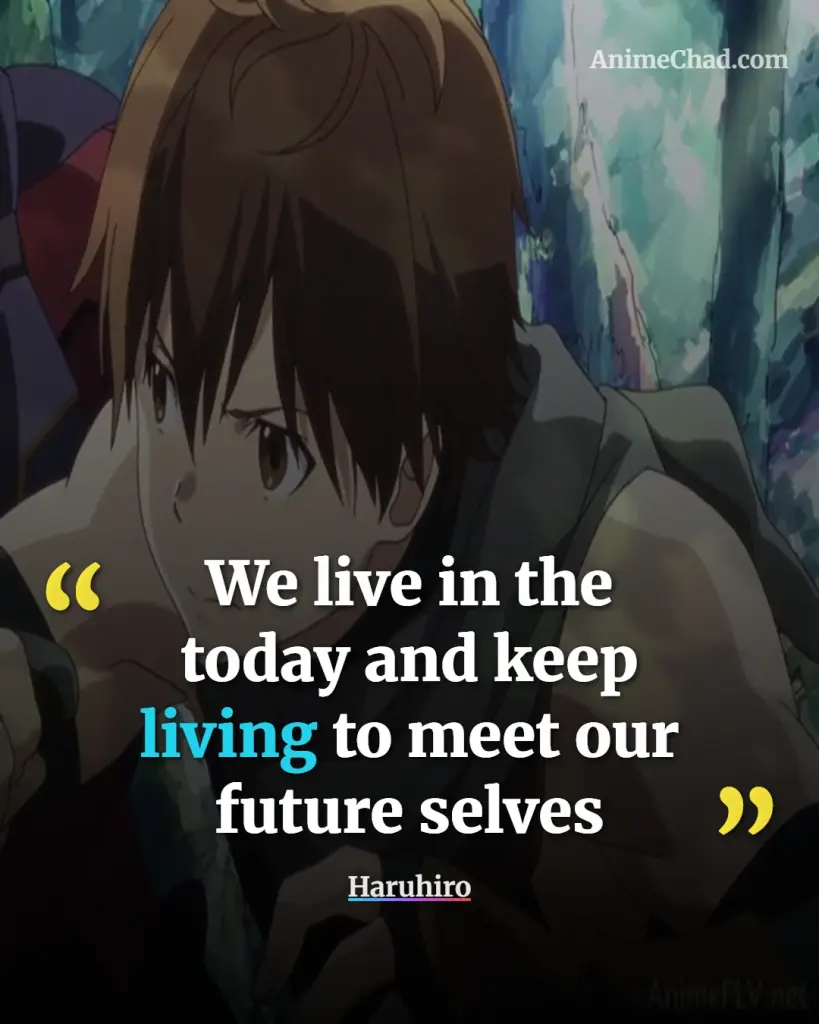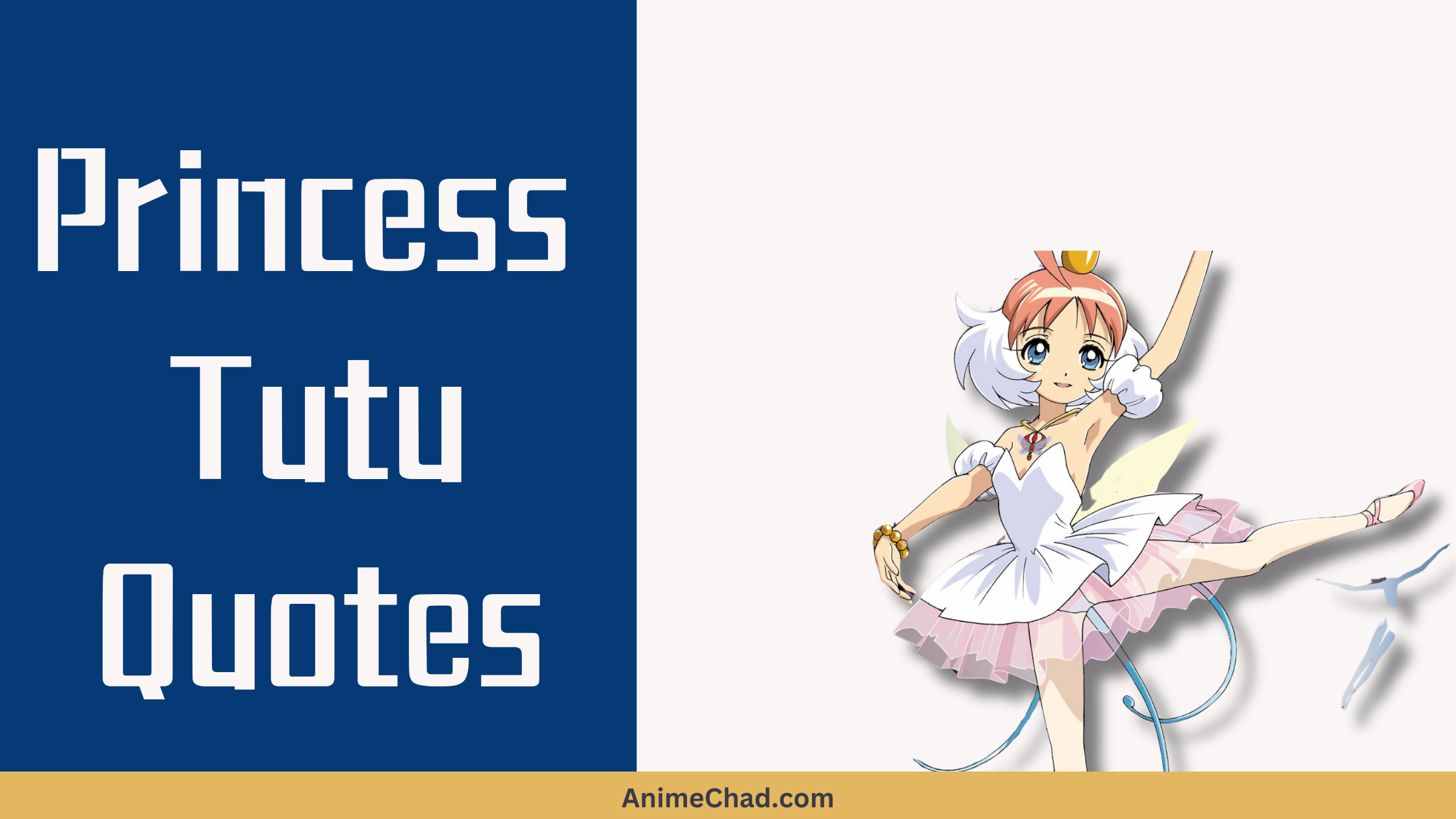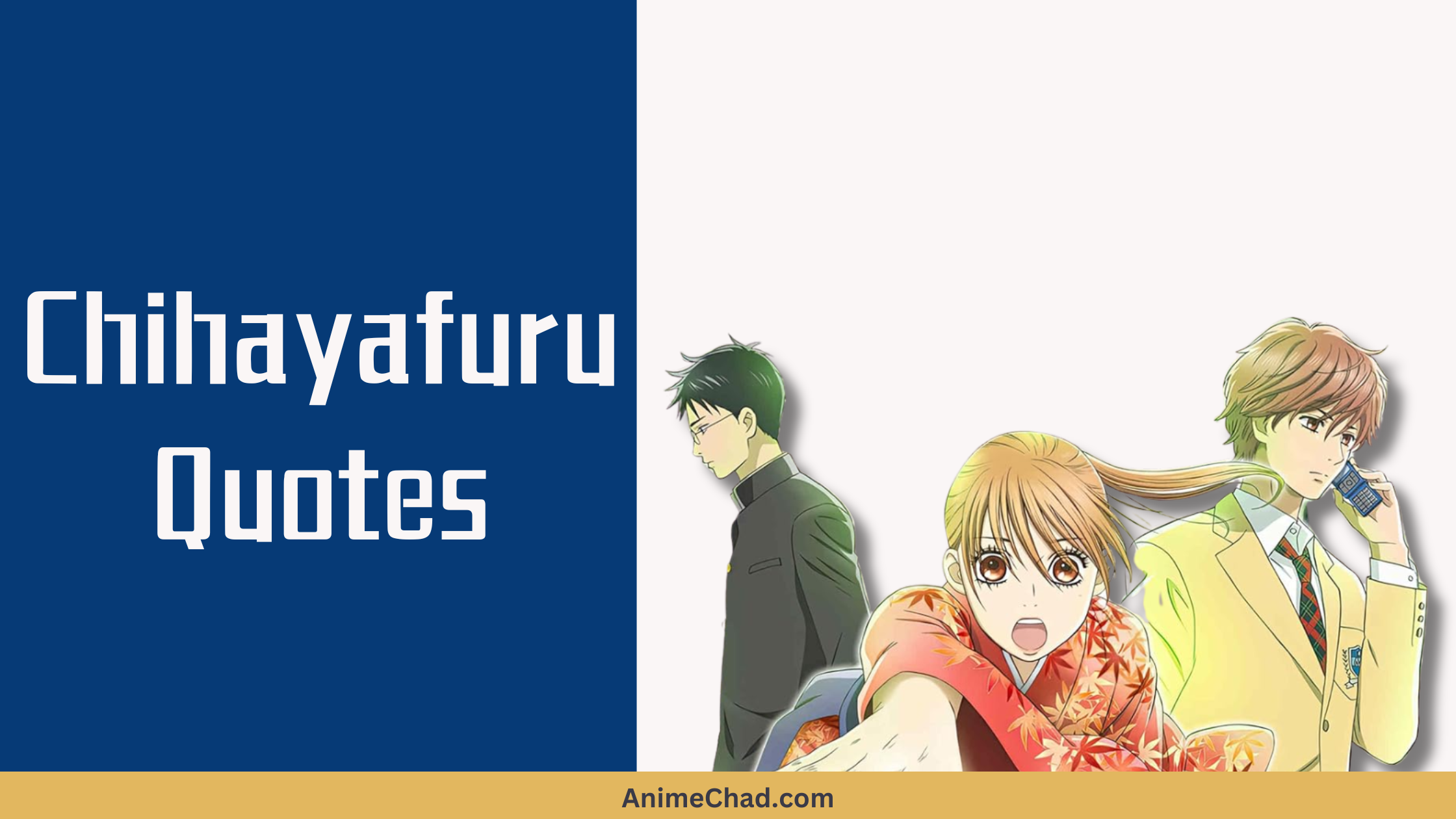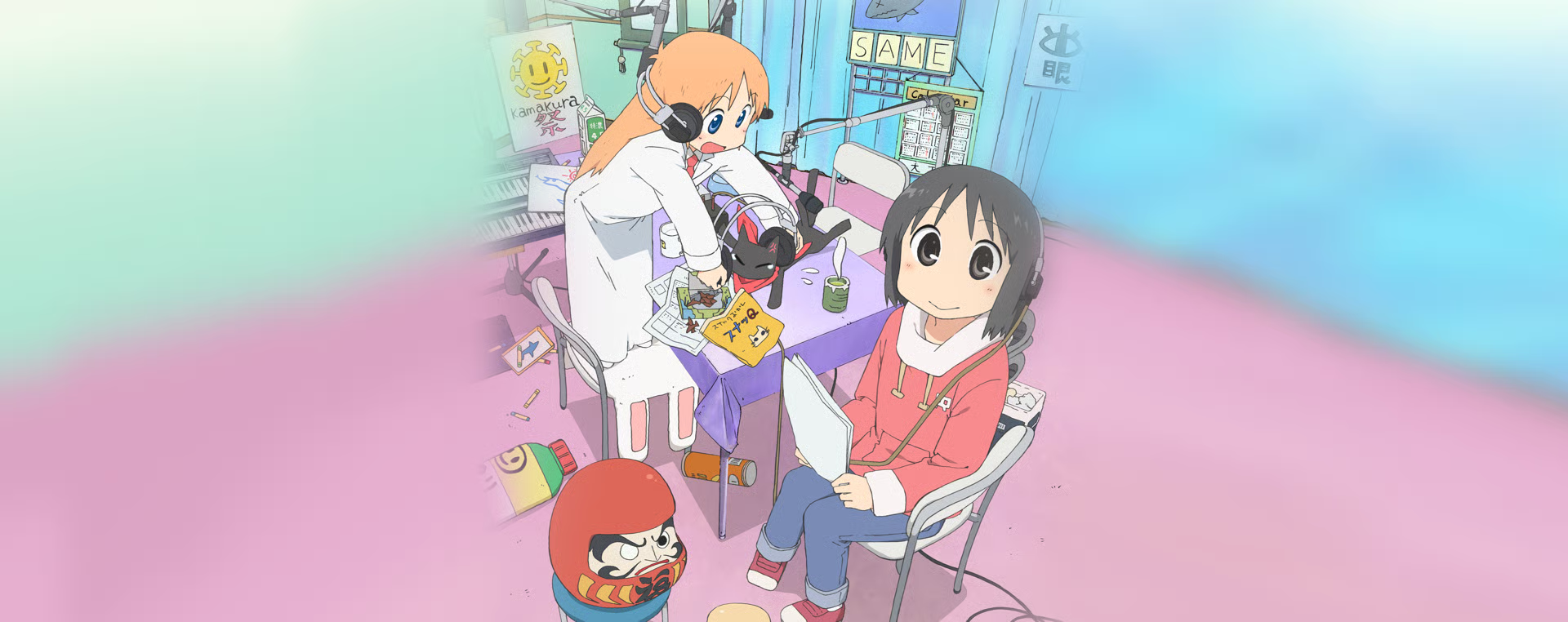Grimgar of Fantasy and Ash follows Haruhiro, a young man transported to a harsh fantasy world with no memories, where he and his companions must form a volunteer soldier party to survive against monsters and scarcity. The series delves into themes of loss, resilience, fragile camaraderie, and the blurred line between life and death in an unforgiving reality.
This curated collection of 25 quotes highlights pivotal moments of emotional growth, blending intense battles with quieter reflections to illustrate the party’s evolving bonds and the weight of their isekai existence.
This isn’t a game. That goblin is fighting for its life just like we are
Episode 1 (An Unfamiliar World)
Manato
Manato’s urgent reminder during their first chaotic goblin skirmish underscores the raw terror of survival, shifting the party from naive assumptions to grim awareness and forging initial unity through shared vulnerability.
Once you die, there’s nothing left… the door to every possibility is closed
Episode 3 (A Cold, Cold Magic)
Haruhiro
Haruhiro’s somber reflection after a close call reveals his budding fear of finality, marking his transition from passive observer to a more protective leader and tying into the series’ theme of irreversible loss.
No living thing wants to die, not even a goblin
Episode 1 (An Unfamiliar World)
Manato
In the heat of their inaugural battle, Manato’s words humanize the enemy, highlighting empathy amid violence and planting seeds of moral complexity that challenge the party’s desensitization to killing.
I ought to get some shut-eye. All this thinking isn’t doing me any good
Episode 2 (The First Day of Training)
Haruhiro
Haruhiro’s weary mutter during a tense camp night captures the mental exhaustion of adaptation, symbolizing his growth from overthinking doubt to practical resilience in the face of endless uncertainty.
If you can’t grope around blindly in the darkness, you’ll never be able to reach anywhere
Episode 4 (To the Mine)
Haruhiro
Uttered while navigating shadowy tunnels, this line reflects Haruhiro’s emerging determination, connecting personal trial-and-error to the broader theme of perseverance in an opaque, hostile world.
Are our enemies the kobolds? No, our real enemies are our overly weak selves
Episode 6 (One Wish)
Haruhiro
Haruhiro confronts the party’s flaws during a grueling kobold hunt, emphasizing self-improvement over external foes and catalyzing collective development toward stronger teamwork.
Yeah, we’ve become friends. When you’re in the same party, there will be times when things don’t go smoothly
Episode 8 (And Then, a Faint Sign)
Haruhiro
In a rare peaceful huddle after conflict, Haruhiro acknowledges evolving relationships, highlighting the theme of flawed bonds that deepen through adversity and reveal his maturing emotional insight.
I’m different from who I was yesterday. I wonder what I will be like tomorrow
Episode 9 (Holding Our Hearts in Our Hands)
Haruhiro
During a reflective downtime by the fire, this introspective line traces Haruhiro’s incremental growth, tying daily survival to the series’ exploration of identity forged in ongoing hardship.
Crying doesn’t mean you’re weak. Enduring doesn’t mean you’re strong
Episode 5 (Crying Doesn’t Mean You’re Weak)
Manato
Manato comforts a distraught teammate post-battle, challenging stoic facades and promoting vulnerability as strength, which influences the party’s emotional openness after his eventual sacrifice.
There are wounds that even magic can’t heal, but… even though it was painful to hear you talk about it, it was okay
Episode 7 (Only a Human Being)
Merry
Merry’s hesitant admission during a heartfelt group talk exposes her guarded grief, advancing her arc from isolation to trust and underscoring themes of shared pain in healing fractured alliances.
When I die, I wonder what will happen to me. Is there some place like heaven, and will I be able to meet you there someday?
Episode 10 (May We Meet Again Someday)
Haruhiro
Whispered in a vulnerable moment amid escalating dangers, Haruhiro’s fear of the unknown deepens his resolve to protect others, linking personal mortality to the party’s fight against oblivion.
After today, tomorrow will come again. Maybe I’ve been taking that for granted
Episode 11 (One More, Kill One More)
Haruhiro
As the group pushes through fatigue in a desperate assault, this realization amplifies the value of fleeting time, reflecting Haruhiro’s leadership evolution and the theme of cherishing fragile progress.
I now have things that I don’t want to forget, and things that I shouldn’t forget
Episode 12 (The Two of Us, in This World)
Haruhiro
In the series’ climactic aftermath, Haruhiro honors lost comrades during recovery, signifying his profound character shift from detachment to committed memory, central to enduring companionship.
If we had spent more time together, maybe I would have seen another side of him
Episode 5 (Crying Doesn’t Mean You’re Weak)
Haruhiro
Mourning Manato’s death in a quiet lament, Haruhiro grapples with regret, highlighting themes of untimely loss and spurring his reluctant step into leadership amid raw sorrow.
When you try to do things right, it just makes it harder, doesn’t it?
Episode 7 (Only a Human Being)
Ranta
Ranta’s gruff advice during a tense party dispute lightens a heavy arc, revealing glimpses of his hidden empathy and balancing comic relief with the series’ focus on imperfect human efforts.
There’s a wide, deep and fast running river between the living and the dead
Episode 10 (May We Meet Again Someday)
Haruhiro
Contemplating irreversible separation in a battlefield hush, this metaphor intensifies the emotional toll of death, driving Haruhiro’s protective instincts and the narrative’s meditation on finality.
Day after day, it’s goblins, goblins, goblins
Episode 6 (One Wish)
Yume
Yume’s exasperated vent during monotonous hunts conveys grinding monotony, yet her light tone fosters group morale, illustrating subtle growth in finding levity within relentless survival struggles.
I wish I knew more about what kind of person he was. I wanted more time
Episode 5 (Crying Doesn’t Mean You’re Weak)
Haruhiro
Echoing grief over Manato in a somber gathering, Haruhiro’s words evoke the pain of abbreviated bonds, propelling the party’s arc toward deeper appreciation of fleeting relationships.
Our overly weak selves
Episode 8 (And Then, a Faint Sign)
Haruhiro
Repeated in strategy talks, this self-critique during a pivotal raid exposes insecurities, fueling collective resolve and connecting to themes of incremental strength built from humility.
But they really are your precious friends. It doesn’t matter why you became friends
Episode 9 (Holding Our Hearts in Our Hands)
Haruhiro
Affirming ties in a tranquil evening chat, Haruhiro’s reassurance cements party loyalty, marking his development from doubt to anchor and emphasizing circumstantial yet vital camaraderie.
Something good might happen tomorrow, anyway
Episode 2 (The First Day of Training)
Haruhiro
Offered as quiet optimism before rest, this counters despair after early failures, highlighting Haruhiro’s budding hopefulness and the series’ motif of persisting through small victories.
You don’t need to take everything so seriously
Episode 7 (Only a Human Being)
Ranta
Ranta’s blunt quip amid rising tensions eases interpersonal friction, unveiling his role in morale and tying to broader themes of balancing gravity with levity in a deadly realm.
That part was okay
Episode 7 (Only a Human Being)
Merry
Merry’s soft closure on painful revelations during bonding fosters reconciliation, advancing her from emotional walls to openness and underscoring healing through honest vulnerability.
Tomorrow’s what’s important now
Episode 3 (A Cold, Cold Magic)
Haruhiro
Muttered after a narrow escape, this forward gaze signifies Haruhiro’s shift toward proactive survival, intertwining personal evolution with the relentless forward march of their harsh world.
We live in the today and keep living to meet our future selves
Episode 12 (The Two of Us, in This World)
Haruhiro
In triumphant reflection post-final battle, Haruhiro encapsulates growth through persistence, weaving the party’s arc with themes of evolving identity amid loss and hard-won unity.
